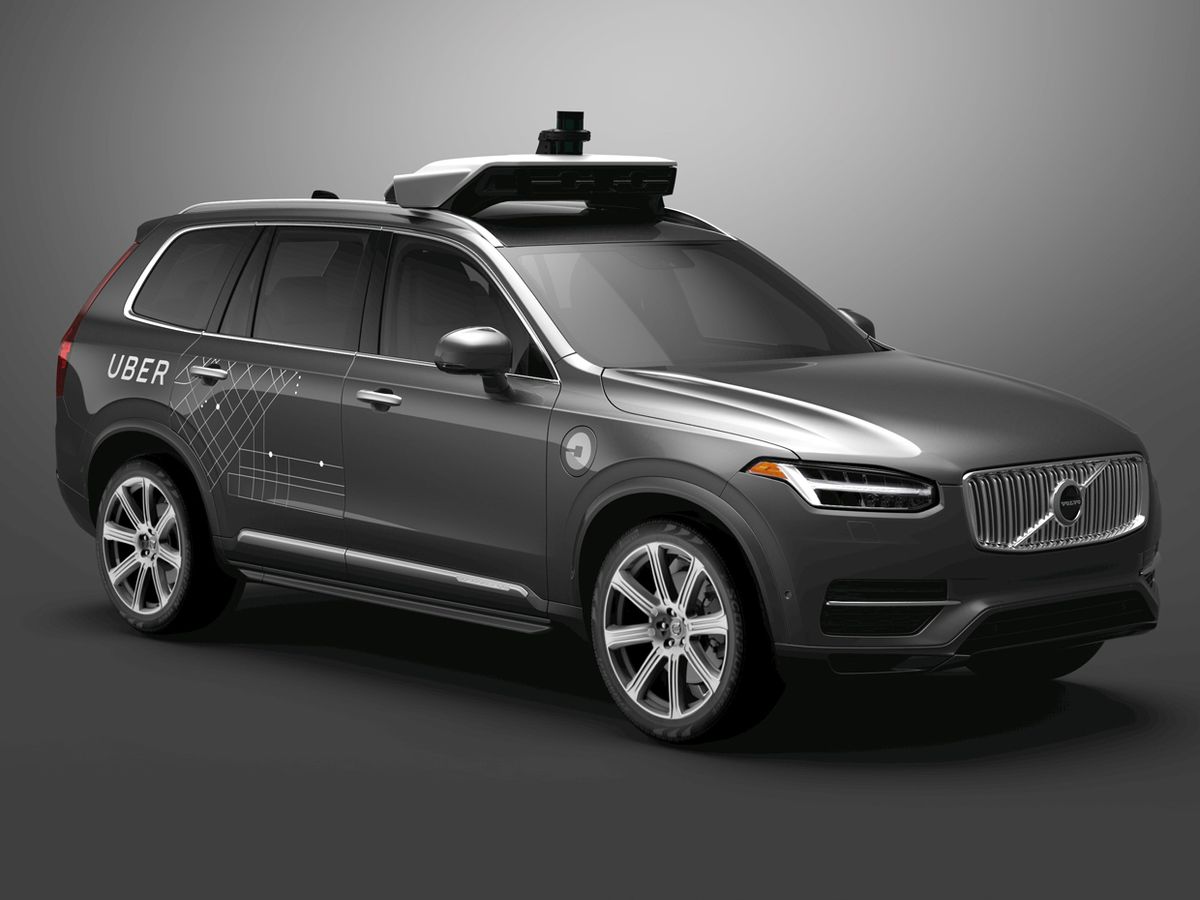Volvo today announced that it would supply Uber with 24,000 self-driving cars over a three-year period, beginning in 2019. It’s the biggest robocar deal yet.
"Our objective is to be able to operate them without anyone behind the wheel in select cities and environments; the more common definition of that is Level 4 [autonomy]," said Uber's head of automotive alliances, Jeff Miller, in an interview with Automotive News Europe.
Miller said Uber chose Volvo in part for its new SPA architecture, which includes wiring that can hook up with today’s advanced driver assistance systems (ADAS) and any further self-driving components that Uber may specify. Uber may, for instance, need additional features in a vehicle meant to be used purely in a ride-hailing service. The electrical system connects all aspects of the car’s functioning—movement, safety, infotainment, navigation—seamlessly.
Such seamlessness does pose certain risks. The company, based in Gothenburg, Sweden, but owned by China’s Geely, has to ensure that the car’s electronic backbone is rock-solid and resistant to hacking. Still, Volvo—perhaps more than any other car maker—has emphasized the importance of multiple redundant safety systems.
The model in question is the Volvo XC90 crossover, which can seat up to seven people. Presumably that means seven passengers and no driver, although who knows, maybe the service will start with a safety driver. That’s what Waymo is doing right now in its ride-hailing pilot program in Chandler, Ariz. However, this month Waymo took the safety driver from behind the steering wheel and put him into the back seat.
Volvo plans to begin its own self-driving program with a fleet of 100 XC90s in Gothenburg, Sweden, beginning next month.
Neither Volvo nor Uber put a price on the project or a precise date for its rollout. The technology would first have to be ready, of course, but so would new rules of the road, at least in the districts where the ride-hailing service is to operate.
Philip E. Ross is a senior editor at IEEE Spectrum. His interests include transportation, energy storage, AI, and the economic aspects of technology. He has a master's degree in international affairs from Columbia University and another, in journalism, from the University of Michigan.



